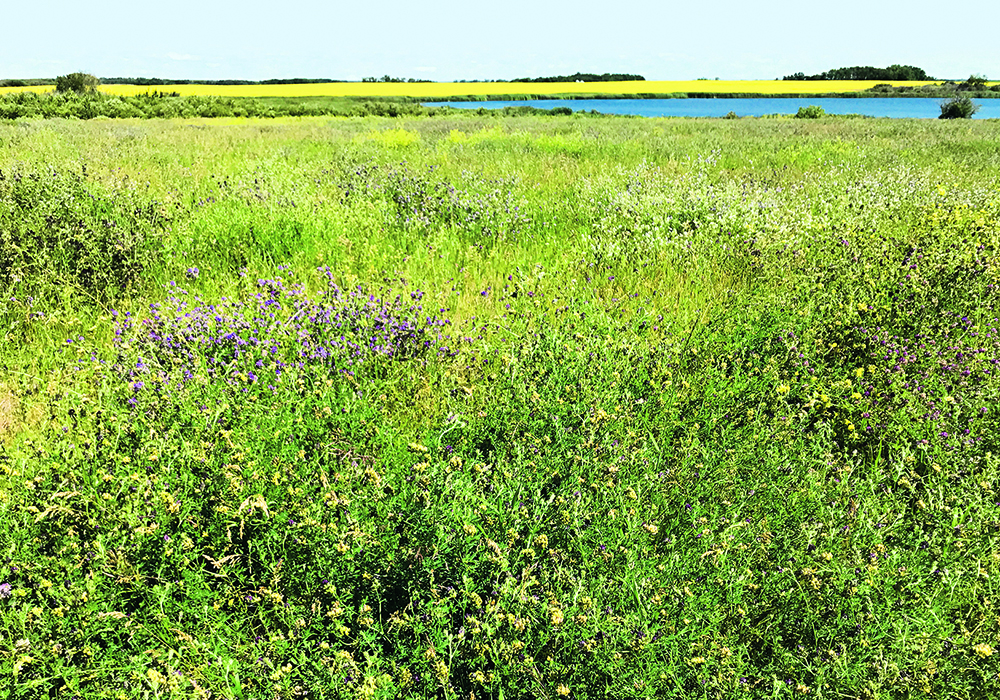Company supports FCC and Ducks Unlimited in their efforts to convert low productivity farmland into perennial cover
Glacier FarmMedia – Ducks Unlimited Canada and Farm Credit Canada have a new partner for their sustainability initiatives.
DUC announced in late May that multinational food company PepsiCo will help support FCC’s Sustainability Incentive Program. It links with DUC’s efforts to encourage producers to convert low productivity farmland into perennial cover.
DUC’s Marginal Areas Program helps producers absorb the cost of conversion and management, typically through 10-year agreements.
Read Also

Trump’s tariffs take their toll on U.S. producers
U.S. farmers say Trump’s tariffs have been devastating for growers in that country.
In 2023, FCC announced its linked program, which offered up to $2,000 to borrowers who also signed on with DUC. Amounts were a percentage of total borrowing, up to $50 per acre enrolled with the Marginal Areas Program. The addition of PepsiCo adds another $1,000 to that potential pot.
To access the funding, farmers must:
• Have an active lending product and be in good standing with FCC.
• Be enrolled in DUC’s Marginal Areas Program, with an established perennial forage or pollinator habitat and holding a current DUC agreement.
• Include oats or canola in crop rotation.
Inclusion of oats or canola is an additional stipulation set by PepsiCo.
The incentive works out to earning back approximately 0.5 per cent of loan interest, according to Curtis Grainger, FCC’s director of sustainability programs. Beyond that, perennial forage or pollinator habitat on unproductive land can increase production value and reduce revenue loss.
The FCC and DUC partnership is aimed at greater adoption of sustainability and beneficial land management, Grainger said.
“There needs to be the realities of economics in sustainability. So, we believe by providing annual financial incentives to our customers, that it will support them to adopt sustainable agricultural practices.”
The partnership program had strong initial uptake despite its short window last year. There were 21 successful applicants in 2023, averaging an incentive of $1,300. FCC expects greater participation this year.
Applications are open from May 21 to Dec. 31. Producers can also reapply annually for the incentive. Applications can be done online through the FCC portal, through an FCC lender, or by contacting FCC Sustainability.
A mix of grass and legumes can provide good livestock feed, and the program counts pollinator habitat as a mix of flowering plants, said Karli Reimer, DUC’s agricultural industry relations specialist.
“We’re all about ‘farm the best, save the rest,’” she said.
For DUC, that means giving producers the ability to manage the land with all applicable tools and technologies, knowledge and agronomy support, she said.
The Marginal Areas Program typically offers $135 to $150 per acre, depending on location.
“Having plenty of forage on some of those wetter areas or around the fringes of those fields can help filter water and store carbon,” Reimer said. “They’re also good for nutrient filtration — kind of the last line of defence for many unintended consequences when it comes to applying crop protection products and fertilizers.”
Besides production gains and environmental benefits, better biodiversity is another big aim of the program. Pollinators, upland nesting birds and other wildlife flock to reestablished habitats.
“Programs like the Marginal Areas Program are well positioned to offer a great solution to producers looking to do something different on those acres, where they can actually make a return on investment where they’re otherwise losing some of the revenue that they’re putting into it,” Reimer said.
DUC will work directly with producers to establish the forage. The 10-year agreements require farmers to maintain the forage for that time and agree to occasional checks by DUC.
Producers interested in the program can contact a DUC office.
















